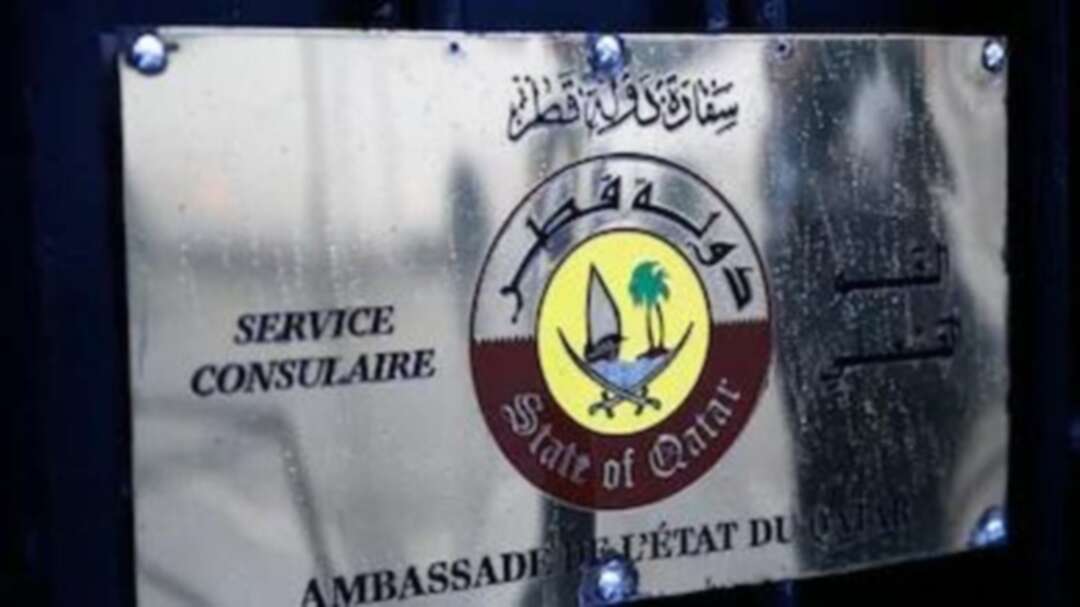-
Franco-German documentary reveals Qatar’s money laundering in Europe

Qatar has been accused of using charitable institutions to fund extremism in Europe in a new documentary released by Arte Channel, a Franco-German free-to-air television network that promotes cultural programming.
The documentary, which premiered on September 17, showcases how Qatari royals and officials have been laundering money and funding the Muslim Brotherhood and other terrorist organizations in European countries including Italy, France, Germany, and the UK.
Documents leaked to journalists Georges Malbrunot and Christian Chesnot reveal in detail how Qatar Charity, an NGO founded in 1992 and active today in seventy countries, has been used to finance the Muslim Brotherhood. The journalists were given the documents – evidence of bank transfers, emails, and other information - on a hard drive by a whistleblower.
The documentary alleges that Qatari officials have been laundering money to members of terrorist organizations under the guise of sponsoring mosques, Islamic centers and schools. The list of donors includes Qatari royal family members Mohammed bin Hamad Al Thani, Saud Jassim Ahmed Al Thani, and Khalid bin Hamad bin Abdullah Al Thani.
Qatar Charity’s largest project is “Centre An-Nour” (An-Nour Center) in Mulhouse, France. The center includes a two-story mosque, classrooms, a library, a restaurant, a halal market, a swimming pool, and a medical center.
According to the documentary, the center cost €28 million ($30 million) to build. Nasser al-Qadi, the president of the France-based Association of Muslim Alsace (AMAL) who administer the center, told Malbrunot and Chesnot that AMAL had received more than half of the project’s budget from Qatar Charity.
The documentary also features Chesnot reviewing official Qatar Charity documents with Director of the Program on Extremism at George Washington University Lorenzo G. Vidino. They note that the organization funded various projects in the Welsh city of Swansea, the French cities of Mulhouse and Strasbourg, as well as London, Berlin and Luxembourg.
Chesnot and Vidino also reviewed a letter signed on behalf of one the Muslim Brotherhood’s spiritual leaders Yusuf al-Qaradawi, calling on organizations to fund the construction of a mosque in Milan.
The journalists met with Qatar Charity under the guise that they were potential investors. Using hidden cameras, they filmed an official who told them that the organization has been funding projects in Europe, and was looking to fund a big project in London.
Qatar Charity has since stopped responding to any inquiries by Arte Channel.
You May Also Like
Popular Posts
Caricature
BENEFIT Sponsors BuildHer...
- April 23, 2025
BENEFIT, the Kingdom’s innovator and leading company in Fintech and electronic financial transactions service, has sponsored the BuildHer CityHack 2025 Hackathon, a two-day event spearheaded by the College of Engineering and Technology at the Royal University for Women (RUW).
Aimed at secondary school students, the event brought together a distinguished group of academic professionals and technology experts to mentor and inspire young participants.
More than 100 high school students from across the Kingdom of Bahrain took part in the hackathon, which featured an intensive programme of training workshops and hands-on sessions. These activities were tailored to enhance participants’ critical thinking, collaborative problem-solving, and team-building capabilities, while also encouraging the development of practical and sustainable solutions to contemporary challenges using modern technological tools.
BENEFIT’s Chief Executive Mr. Abdulwahed AlJanahi, commented: “Our support for this educational hackathon reflects our long-term strategic vision to nurture the talents of emerging national youth and empower the next generation of accomplished female leaders in technology. By fostering creativity and innovation, we aim to contribute meaningfully to Bahrain’s comprehensive development goals and align with the aspirations outlined in the Kingdom’s Vision 2030—an ambition in which BENEFIT plays a central role.”
Professor Riyadh Yousif Hamzah, President of the Royal University for Women, commented: “This initiative reflects our commitment to advancing women in STEM fields. We're cultivating a generation of creative, solution-driven female leaders who will drive national development. Our partnership with BENEFIT exemplifies the powerful synergy between academia and private sector in supporting educational innovation.”
Hanan Abdulla Hasan, Senior Manager, PR & Communication at BENEFIT, said: “We are honoured to collaborate with RUW in supporting this remarkable technology-focused event. It highlights our commitment to social responsibility, and our ongoing efforts to enhance the digital and innovation capabilities of young Bahraini women and foster their ability to harness technological tools in the service of a smarter, more sustainable future.”
For his part, Dr. Humam ElAgha, Acting Dean of the College of Engineering and Technology at the University, said: “BuildHer CityHack 2025 embodies our hands-on approach to education. By tackling real-world problems through creative thinking and sustainable solutions, we're preparing women to thrive in the knowledge economy – a cornerstone of the University's vision.”
opinion
Report
ads
Newsletter
Subscribe to our mailing list to get the new updates!






















